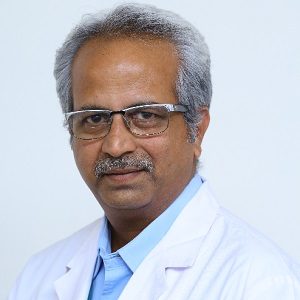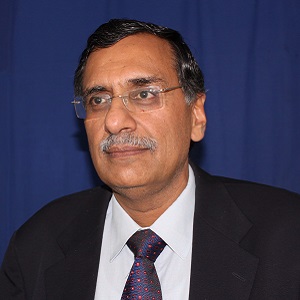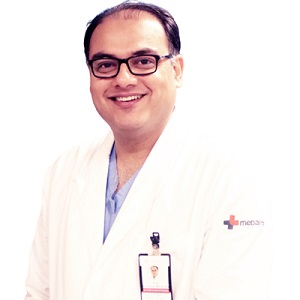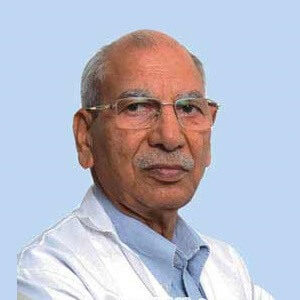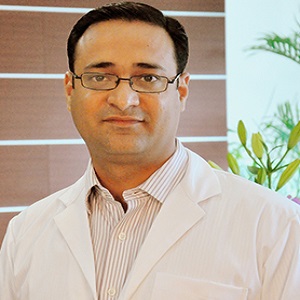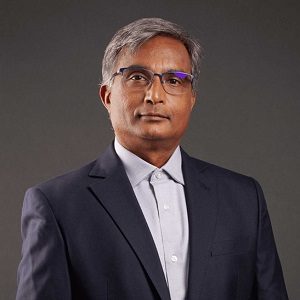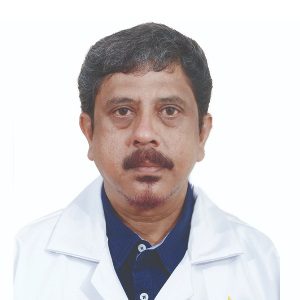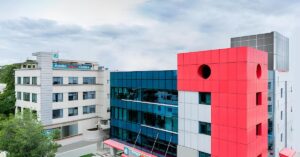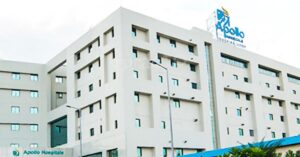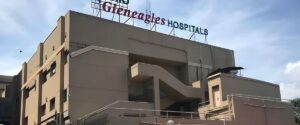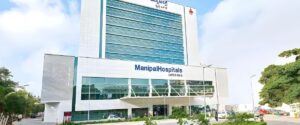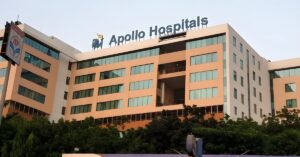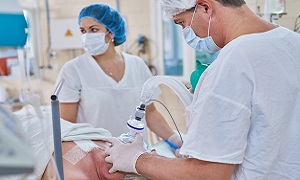Best Doctors in India for Liposuction Surgery
- Plastic Surgeon and Cosmetic Surgeon, Chennai, India
- Over 27 years’ experience
- Apollo Hospitals Greams Road
Profile Highlights:
- Dr. Chepauk Ramesh is one of the best and most experienced Aesthetics and Plastic Surgeons in India, having about two decades of experience.
- Dr. Ramesh completed a fellowship in Microvascular Surgery at the Nizam’s Institute of Medical Sciences in Hyderabad and Tata Memorial Hospital in Mumbai.
- He gives the best of his assistance to the patients in trauma management, Microvascular Reconstruction, Correction of Congenital Anomalies, Trauma Management, Hand Surgery, Burns Reconstruction, and General and Cosmetic Surgery.
- Plastic Surgeon and Cosmetic Surgeon, Chennai, India
- Over 36 years’ experience
- Apollo Hospitals Greams Road
Profile Highlights:
- Dr. Ganapathy Krishnan is a leading Cosmetic or Plastic Surgeon in Chennai and one of India’s most sought-after consultants.
- Dr. Krishnan has been helping patients with the know-how of Reconstructive management for 36 years in this field.
- He received Microsurgery training in Taiwan and practiced for 18 years.
- Plastic & Cosmetic Surgeon, Gurugram, India
- Over 25 years’ experience
- Medanta-The Medicity, Gurgaon
Profile Highlights:
- Dr. Rakesh Kumar Khazanchi is the Chairman of Plastic, Aesthetic, and Reconstructive Surgery at Medanta.
- With over 25 years of surgical experience, Dr. Rakesh Khazanchi specializes in cosmetic surgery, reconstructive microsurgery, vascular malformations, replantation of amputated parts as well as head and neck reconstruction.
- Dr. Khazanchi has undertaken 22 research projects, has published over 60 papers in national and international journals, and has also contributed over four chapters in textbooks as well as edited and authored a book of Plastic Surgery for General Surgeons.
- Plastic and Reconstructive Surgeon, Gurugram, India
- Over 25 years’ experience
- Medanta-The Medicity, Gurgaon
Profile Highlights:
- With over 25 years of experience, Dr. Sanjay Mahendru is a fully qualified aesthetic plastic and reconstructive surgeon.
- He went to receive advanced training in Cosmetic Surgery at the Melbourne Institute of Plastic Surgery, Melbourne, Australia.
- He was also awarded the Advanced Aesthetic Plastic Surgery Fellowship in 2008. The fellowship is recognized by the International Society of Aesthetic Plastic Surgery (ISAPS) and is highly sought after the world over.
- Top Cosmetic & Plastic Surgeon | Apollo Hospital, New Delhi, India
- 52+ Years Experience
- Indraprastha Apollo Hospital, New Delhi
Profile Highlights:
- Dr. Indrapati Singh is one of the best cosmetic surgeons in India with extensive experience. He works as a senior cosmetic surgeon at the Indraprastha Apollo Hospital in New Delhi.
- Dr. Singh specializes in Plastic, Cosmetic, and Reconstructive Surgery and has over 52 years of combined expertise.
- He has successfully performed plastic and cosmetic surgery treatments on all parts of the body. His surgeries on the head, face, neck, and body improve one’s attractiveness. Aesthetic augmentation/reduction, liposuction, vaginal tightness, body contouring, and even hair transplantation are among the therapies available with him.
- Plastic & Cosmetic Surgeon, Gurugram, India
- 15+ years’ experience
- Artemis Hospital, Gurgaon
Profile Highlights:
- Dr. Manik Sharma stands as a distinguished leader in the field of plastic surgery in the Delhi-NCR region.
- With a commitment to delivering high-quality, compassionate care, Dr. Sharma has built a reputation for excellence in both cosmetic and reconstructive plastic surgery.
- Dr. Sharma holds multiple qualifications, including an M.B.B.S., M.S., and M.Ch., and is a board-certified plastic surgeon.
- Plastic & Cosmetic Surgeon, Gurugram, India
- Over 18 years’ experience
- Medanta-The Medicity, Gurgaon
Profile Highlights:
- Known as one of the best Plastic surgeons in Delhi/NCR, Dr. Vilamendu Brijesh completed his graduate diploma from the Royal College of England.
- He performs varieties of reconstructive microsurgeries as well as aesthetic surgeries, but his core areas of interest are Rhinoplasty, Facial Rejuvenation, Hair Transplant as well as surgeries related to Brachial Plexus Injuries.
- Plastic Surgeon and Cosmetic Surgeon, Chennai, India
- Over 22 years’ experience
- Apollo Hospitals Greams Road
Profile Highlights:
- Dr. Antony Aravind is a plastic surgeon in Chennai with an expertise of 22 years in managing cosmetic procedures.
- With his rich experience, Dr. Antony deals with the Reconstructive procedures related to deformities and blemishes. Some of the best services offered include lip enhancement, nose correction, breast augmentation, dermabrasion, etc.
- The British Association of Plastic Surgery has awarded Dr. Aravind Certification in Plastic Surgery.
- Plastic Surgeon and Cosmetic Surgeon, Chennai, India
- Over 14 years’ experience
- Apollo Hospitals Greams Road
Profile Highlights:
- Dr. Kannan Prema is a bright young cosmetic surgeon in Chennai, working on aesthetics.
- With over 14 years of experience as a board-certified cosmetic surgeon, Dr. Kannan Prema is the ideal choice.
- She provides surgical treatments like breast reduction, Rhinoplasty, removal of skin tags, buttock liposuction, etc.
- Plastic Surgeon and Cosmetic Surgeon, Chennai, India
- Over 16 years’ experience
- Apollo Hospitals Greams Road
Profile Highlights:
- Dr. Kumaresan M N is one of the finest Cosmetic Surgeons in Chennai with nearly 16 years of experience in the field.
- He ensures the best aesthetics for his patients.
- The Tamil Nadu Medical Council has had him as a member since 1992.
Best Hospitals in India for Liposuction Surgery
- City: New Delhi, India
Hospital Highlights:
- Equipped with 650 beds, BLK-Max Super Speciality Hospital is the largest stand-alone private sector hospital in Delhi.
- With over 1500 healthcare providers and 150 globally renowned super specialists, the hospital is one of Asia’s largest BMT Centres. The hospital is known for having some of the best cancer doctors in the country.
- The hospital is NABH and NABL accredited and was inaugurated by the first Prime Minister of India. Pt. Jawahar Lal Nehru.
- City: Hyderabad, India
Hospital Highlights:
- Located in the vibrant city of Hyderabad, Apollo Health City is a world-renowned medical facility that provides outstanding care and treatment to patients coming from different parts of the world.
- Founded in 1988, this 550-bed multispecialty hospital with 50 specialties and 12 Centres of Excellence continues to deliver outstanding outcomes for patients with the simplest to the most complicated medical conditions.
- Backed by the latest medical equipment and a dedicated team of professionals, the hospital provides comprehensive treatment across various specialties including, cardiology, critical care, neurosciences, cancer, orthopedics, gynecology, ENT, transplants, gastroenterology, etc.
- Apollo Health City is a cutting-edge healthcare facility that combines various facilities under one roof. These may include state-of-the-art physical medicine, rehabilitation, and wellness services with education, research, telemedicine, innovative medical devices, disease management programmes, and medical talents.
- The hospital is known for offering top-notch cancer treatment accompanied by cutting-edge facilities and technology.
- The hospital also offers a broad spectrum of cosmetic procedures that improve not just appearance but also comfort.
- In 2011, Apollo Health City was the recipient of the Asian Hospital Management Award (AHMA).
- In 2013, the Government of India recognized Apollo Health City as the top medical tourism destination in the country.
- City: Mumbai, India
Hospital Highlights:
- Kokilaben Dhirubhai Ambani Hospital, Named after the wife of Indian industrialist Dhirubhai Ambani, the founder of Reliance Industries, this is one of the top hospitals in Mumbai. This 750-bed multi-specialty hospital became operational in 2009. Known as one of India’s most advanced tertiary care facilities, the hospital is designed to raise India’s global standing as a healthcare hub, with an emphasis on excellence in clinical services.
- Kokilaben Dhirubhai Ambani Hospital uses Protocol and Care Pathway based treatment models to ensure the best outcomes for patients.
- The hospital represents a confluence of top-notch talent, cutting-edge technology, state-of-the-art infrastructure, and, most importantly commitment.
- The hospital also holds the accreditation of the NABH, NABL, CAP, and JCI.
- The hospital has been recognized as the No. 1 Multispecialty Hospital in Mumbai and the West Zone for the fifth year in a row in 2020 by The Week.
- City: Chennai, India
Hospital Highlights:
- Apollo Cancer Centre in Teynampet, Chennai is one of the best super speciality hospitals in India. It is the country’s first ISO-certified healthcare facility.
- Additionally, it is the first hospital in Chennai and the first oncology hospital in India to receive NABH accreditation.
- The hospital provides advanced tertiary care in oncology, orthopedics, neurology and neurosurgery, head and neck surgery, and reconstructive and plastic surgery.
- Additionally, it offers specialized healthcare of international standards with results comparable to those of the best hospitals in the world.
- It is outfitted with 300 beds, the newest and greatest technology, a large pool of highly qualified specialists, and a committed team of medical and paramedical professionals.
- It is one of the first few medical facilities in India to offer comprehensive cancer care. A team of skilled medical, surgical, and radiation oncologists makes up the Tumour Board, which is a component of the complete treatment planning system. After reviewing reported cases, the Board determines in concert with diagnostic specialists what course of action is best for each individual patient. The panel is further supported by dieticians, medical counselors, speech therapists, and other pertinent specialists.
- The hospital launched the first ExcelsiusGPS® Spine Robot in South India and has completed over 50 surgeries till date.
- It is also one of the few cancer hospitals in India to offer Cyber Knife therapy. Till now it has completed 1320 Cyber Knife therapies.
- The institution is also one of the few in India with the capacity to do transplants and find a prospective unrelated donor. The hospital has performed over 1000 BMTs till now.
- Furthermore, it has an exceptional milestone of performing exultant Micro vascular free tissue transfer and Aesthetic surgeries on more than 1000 patients with success.
- City: Chennai, India
Hospital Highlights:
- Apollo Hospitals, Chennai, is one of the best hospitals for heart care in India. Over the years, Apollo has expanded all over India, as a healthcare chain.
- India’s first ‘Only Pancreas’ transplant was performed in Apollo Hospital. The hospital is known for successfully performing Asia’s first en-bloc combined heart and liver transplant, and over the years, it has attained a remarkable achievement in the global healthcare space. Around 3-4 organ transplants are performed in the hospital per day.
- Equipped with over 500 beds, this hospital in Chennai was established in 1983 and since then has been among the most preferred hospital for patients from all over the world.
- The hospital holds accreditation of the NABH and JCI and is the first hospital in India to be ISO 9001 and ISO 14001 certified. It is also the first South Indian Hospital to receive subsequent reaccreditation from the JCI USA 4 times.
- City: Chennai, India
Hospital Highlights:
- Established in 1999, Gleneagles Global Hospital, Chennai, is one of the top healthcare facilities in Southern India. It is part of the Gleneagles Hospital Chain, which is the fourth largest healthcare chain in the country. The hospital specializes in multi-organ transplants of kidneys, liver, lungs, heart, etc.
- The hospital has an excellent infrastructure and state-of-the-art lab and equipment set-up. The hospital boasts cutting-edge technologies, a highly skilled team of doctors and surgeons, and trained support staff. Located in Perumbakam, Chennai, it is one of India’s premier health care destinations. The hospital has performed some of the most complex surgical and clinical procedures in India including multi-organ transplantations.
- The hospital’s lung transplantation program is one of the best in the country. The hospital is known for having performed India’s first single lung transplant and first minimal invasive lung transplant. It is also the only Indian hospital to be associated with King’s College Hospital, London, United Kingdom for liver transplantations.
- City: Hyderabad, India
Hospital Highlights:
- KIMS Hospital (a brand name of Krishna Institute of Medical Sciences) is one of the largest and best multi-speciality hospitals in Hyderabad. The hospital provides various treatments to an enormous number of patients.
- The hospital has a capacity of more than 3000 beds. KIMS Hospitals offers different healthcare services in more than 25 specialities and super specialities.
- The hospital is equipped with modern medical equipment and technology. It has robotic equipment to provide minimal invasive techniques for patients.
- The hospital is aimed at providing world-class healthcare facilities and services at an affordable cost for patients.
- The various specialities and departments of the hospital include neurosciences, gastroenterology & hepatology, robotic science, reproductive sciences, dental science, oncological sciences, organ transplantation, heart and lung transplantation and mother and child care.
- City: Kolkata, India
Hospital Highlights:
- Established in 2003, Apollo Gleneagles Hospitals is a 750-bed multispecialty tertiary care hospital situated in Kolkata.
- With 33 Centres of Excellence and more than 50 specialties, Apollo Gleneagles Hospitals, Kolkata is capable of handling all sorts of patients.
- This tertiary care hospital, which is a 100% subsidiary of Apollo Hospitals Enterprise Ltd., India, is regarded as one of Kolkata’s top hospitals.
- The facility is a complete blend of cutting-edge technology, state-of-the-art infrastructure, and genuine hospitality.
- Focusing on numerous specialties, the hospital provides all-inclusive medical treatments supported by cutting-edge technology and a staff of highly qualified medical specialists.
- Patients across the globe come to Apollo Gleneagles Hospitals Kolkata for their treatment. Moreover, international patients receive full attention and assistance for their treatment and are provided with a hassle free experience.
- Apollo Gleneagles Hospitals, Kolkata is the only hospital in Eastern India to hold the Joint Commission International (JCI) certificate.
- It is also the only hospital in Kolkata to hold the NABL accreditation in six different categories, which includes Clinical Biochemistry, Clinical Pathology, Hematology & Immunohematology, Microbiology & Serology, and Histopathology & Cytopathology.
- Furthermore, Apollo Gleneagles Hospitals, Kolkata is known for performing the first ever Reverse Shoulder Prosthesis Replacement in East India.
- City: Bengaluru, India
Hospital Highlights:
- Established in 1991, Manipal Hospital, Old Airport Road, Bangalore is the flagship facility of the Manipal Hospitals Group, which is one of the largest networks of Multispecialty Private Hospitals in India.
- The facility is well-known for its state-of-the-art technology, performance-driven, patient-centric, and evidence-based approach.
- The facilities offered at Manipal Hospital meet the highest international standards, allowing the hospital to attract a large number of national and international patients.
- Their expertise encompasses the diagnosis and treatment of a wide range of diseases in several specializations that address both simple as well as complex medical procedures.
- There are total 600 beds accessible in the hospital for the in-patients so they may heal while being closely watched after by the medical team. In addition, it has 144 critical care units, including NICUs, ICCUs, and ICUs. Apart from that, the hospital also offers 20 contemporary, modular state-of-the-art operating rooms with all the amenities needed.
- The hospital has several departments that are overseen by highly skilled, certified, and experienced medical experts.
- One of the best departments in the hospital is that of the Cancer department which is known for its advanced cancer diagnosis and treatment facilities such as Intracavitary Chemotherapy, Biological Therapy, HIPEC, PIPEC, Nuclear Medicine, Radiation Therapy, etc.
- It is one of the few hospitals in Bangalore that provides full range of pediatric services, including pediatric emergency services, pediatric gastroenterology, pediatric neurology, pediatric cardiology, pediatric orthopaedics, pediatric allergies, pediatric immunology, and infectious diseases.
- Furthermore, Manipal Hospital, Old Airport Road, Bangalore is also regarded as one of the best hospitals for bone and spine related disorders.
- City: Mumbai, India
Hospital Highlights:
- Established in 2016, Apollo Hospitals, Navi Mumbai is one of Maharashtra’s most advanced multispecialty hospital. This 500-bed hospital provides sophisticated treatments and integrated super specialty services under one roof.
- The hospital features a cutting-edge infrastructure that houses 13 state-of-the-art operating rooms, advanced laboratory and medical diagnostics, and 120 ultra-modern I.C.U. beds, including N.I.C.U. and P.I.C.U., monitored round the clock by critical care specialists.
- With 57 specialties and subspecialties, the hospital boasts a team of renowned medical specialists who offer accurate diagnosis and treatment with easy accessibility to their patients.
- Additionally, the hospital offers highly customized, individualized health check programs that are made to fit each person’s needs in terms of lifestyle.
- Apollo Hospitals, Navi Mumbai has been accredited by both the National Accreditation Board for Hospitals and Healthcare Providers (NABH) and the Joint Commission International (JCI).
- Apollo Hospitals Navi Mumbai has been awarded the “Best Practices-International Services Award” at the annual awards for service excellence and operations excellence.
Liposuction
Liposuction, which is also termed as lipectomy, lipoplasty or liposculpture suction, is a type of cosmetic procedure, which can break up and suck the fat out of the body. It can be used to remove fat from body parts such as the abdomen, neck, buttocks, chin, back, etc. The fat is removed using a hollow instrument known as a cannula, inserted under the skin, after which a powerful, high-pressure vacuum is applied to it. The procedure is carried out under general anesthesia.
Though liposuction can permanently remove fat cells in one’s body, which will alter the body shape, one needs to remember that if the patient refuses to lead a healthy lifestyle after the operation, there is a huge risk that the remaining fat cells will grow even bigger. Though there are some risks in this operation, it is linked to the amount of fat that was removed during the procedure. After the procedure, the skin molds itself to the new contours of the areas which were treated. If your skin tone and elasticity are good, the skin will likely appear smooth. However, if you have thin skin with poor elasticity, the skin in the treated areas might appear loose.
To be able to go through liposuction, it is important that you are in good health without conditions that might cause complications to the procedure. If you have conditions such as diabetes, weak immunity, restricted blood flow or coronary artery disease, complications might likely occur.
Why it is done
People who go through this procedure have more body weight than normal. Therefore, they use it to remove undesirable fat deposits in some specific body parts. However, liposuction should not be considered a treatment for obesity or an overall weight-loss method.
The main purpose of liposuction is to improve the appearance rather than to provide benefits to physical health. The same or even better results can be achieved through a healthy lifestyle, a healthy balanced diet, exercising regularly and proper sleep. Liposuction is advisable only if lifestyle changes have been unable to achieve the results which one was expected. Before one goes for the operation, proper consultation with the doctor is highly recommended.
Preparation
Before the procedure, it is important that you discuss with your surgeon regarding your expectations from the procedure. Your surgeon will review your medical history and ask you regarding any medical conditions which you might be having and any medications, herbs or supplements that you might use. Your surgeon might also ask that you stop taking certain medications such as NSAIDs, at least around three weeks before the procedure is performed.
If only a small amount of fat needs to be removed, your procedure can be done in an office setting. But if a large amount needs to be removed, the procedure has to be done in a hospital, and it will require you to stay overnight as well. In either case, you should consider arranging someone who can drive you home and can stay with you for at least the first night after the procedure.
Types of Liposuction
Tumescent Liposuction is known to be the most common type of liposuction. The surgeon first injects a sterile solution, which is a mixture of saltwater to aid in removing the fat, an anesthetic to relieve the patient’s pain and a drug that will make the blood vessels constrict into the areas that are being treated. Due to the mixture, the affected areas might swell and stiffen.
After this, the surgeon makes small cuts into the patient’s skin after which he inserts a cannula, a thin tube into the skin. This is connected to a vacuum that will suction the fat and fluids from the body. Your body fluid can also be replenished through an intravenous line.
Laser-assisted liposuction is another technique that uses high-intensity laser light which breaks down the fat to remove them. During this technique, the surgeon inserts a laser fiber through an incision in the skin and emulsifies the fat deposits. After this, a cannula is used to remove the fat.
Power-assisted liposuction is another type of liposuction in where the surgeon uses a cannula which moves in a rapid back-and-forth motion. Due to this vibration, the surgeon can pull out tough fat far more easily as well as faster. This method also involves less pain and swelling and allows your surgeon to remove the fat more precisely. This technique is usually used when you have large volumes of fat that require removal.
Ultrasound-assisted liposuction is a type of liposuction is used in conjunction with the traditional liposuction method. During this method, the surgeon inserts a metal rod, which emits ultrasonic energy under the skin. This can rupture the fat-cell walls, resulting in the breaking down of the fat, making them easy to remove.
During the procedure
Some liposuction procedures might require only local or regional anesthesia, as anesthesia is limited to specific areas of the body. However, other procedures can require general anesthesia, which can induce a temporary state of unconsciousness. You might receive a sedative, through a IV injection, so that you can remain calm as well as relaxed.
Your heart rate will be closely monitored by the surgical team, along with your blood pressure and blood oxygen level throughout the procedure. If you were given local anesthesia, and you feel pain during your procedure, inform your surgeon, as your medication or motions may require adjustment. Depending on the fat that needs removal, the procedure can last up to several hours.
If you were administered general anesthesia, you will wake up in the recovery room. If you are in a hospital, you might need to stay overnight to make sure that you’re not dehydrated or in shock due to the fluid loss.
Results
After the procedure, the swelling should subside within a few weeks. The treated area will look less bulky over time. Within several months, you can expect the treated area to have a much leaner appearance.
Though it is natural for the skin to lose some firmness with aging, liposuction generally gives long-lasting results if you are able to maintain your weight.
Risks
There are also a few risks of this procedure, which might result in some complications or side effects. They include:
- Severe bruising which can last up to several weeks.
- Numbness in the affected area for a while, but this is temporary
- Inflammation and swelling which can take up to 6 months to settle
- Thrombophlebitis, a blood clot which forms in a vein can also cause inflammation
- If there is poor skin elasticity or if the fat removal has been uneven, it is possible that the skin can appear withered, wavy, or bumpy.
- Anesthesia involves a small risk of death as well.
- Although it is rare, a skin infection can sometimes occur after the liposuction procedure. This needs to be treated surgically though, with the risk of scarring.
- Although very rare, sometimes liposuction can cause puncture of internal organs.
- Sometimes as the fluids are injected or suctioned, there is a change in the body’s fluid levels, which can cause kidney or heart problems.
- Sometimes, when fluid is injected into the body, it can accumulate in the lungs, which is called pulmonary edema.
- Sometimes, fat can get into the blood vessels, and travel into the lungs, which can block the circulation. Know as pulmonary embolism, this can be quite dangerous life-threatening.
- The cannula movement can sometimes lead to friction burns to the skin or the nerves.

